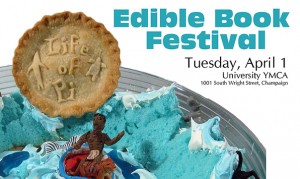Spend a weekend learning about the Text Encoding Initiative (TEI) markup language, an important tool for digital humanities research! Take the “Introduction to Text Encoding with TEI” workshop at the Graduate School of Library and Information Science (GSLIS) and learn the fundamentals of using XML for research, teaching, electronic publishing, and management of digital text collections. This hands-on workshop will be taught by Julia Flanders and Syd Bauman, experts known for their work on the Women Writers Project. During the two-and-a-half day course, participants will learn how to work with XML technologies to develop digital representations of texts using the TEI standard. The workshop will take place in the GSLIS building, beginning Friday, February 21 and ending Sunday, February 23, 2014.
——
Schedule, Cost, and Registration
——
Participants will meet in the GSLIS Learning Resource Lab for an introductory session on Friday evening and two full-day sessions on Saturday and Sunday. Participation is currently limited to 30 people seated at desktop workstations. Those bringing laptops will need to install a free trial version of the Oxygen XML editor – available from http://www.oxygenxml.com – on their computer prior to attending the workshop. Participants without prior markup experience will be asked to introduce themselves to TEI and XML by reading through a short suggested reading list, provided after registration.
Per person, the cost of the workshop is
- $30 for current UIUC students;
- $125 for UIUC faculty, staff, and alumni;
- $300 for non-UIUC affiliates.
You must sign up and pay in advance to attend. To reserve your spot and begin the registration process, please email tei-workshop@illinois.edu with the following information:
- your address,
- phone number,
- University of Illinois ID number
- (if you are an alumni, your year of graduation)
- (if you aren’t affiliated with the U of I, the name of the institution with which you are affiliated); and
- whether you will bring your own laptop, and, if so,
- which operating system you will use.
Those interested in attending the workshop are encouraged to register early as space is limited and the course fills up quickly. A registration waitlist will be kept after capacity is exceeded. Participants cancelling their reservation on or before February 14, 2014 will receive a 50% refund of their registration fee. Following this date, no refunds will be given.
This year’s workshop is co-organized by Ashley M. Clark and Megan Senseney. If you have any questions, please contact us at: tei-workshop@illinois.edu or (217) 244-5574.
——
About the Text Encoding Initiative
——
A seminal effort in the digital humanities community, the TEI is “an international and interdisciplinary standard that helps libraries, museums, publishers, and individual scholars represent all kinds of literary and linguistic texts for online research and teaching, using an encoding scheme that is maximally expressive and minimally obsolescent.” Allen Renear, GSLIS professor and interim dean, and John Unsworth, former GSLIS dean, have long been involved with the TEI community, and use of TEI markup is growing steadily. More information on the TEI can be found at the TEI Consortium website: http://www.tei-c.org/.
——
About the Instructors
——
Julia Flanders and Syd Bauman are active participants within the TEI and the Association for Computers and the Humanities. They have led numerous workshops, teaching the TEI standard to diverse groups at all levels of technical accomplishment. Julia and Syd work on the Women Writers Project (http://www.wwp.brown.edu/), a major text encoding effort of Northeastern University’s Digital Scholarship Group. Julia is Director of the Women Writers Project, as well as Professor of the Practice of English at Northeastern University. Syd is Senior Analyst for the Women Writers Project and former North American Editor of the TEI Guidelines.
 The 9th Annual Edible Book Festival will take place on Tuesday, April 1, 2014 at the University YMCA in Champaign (1001 South Wright Street). According to the Library News & Events website,
The 9th Annual Edible Book Festival will take place on Tuesday, April 1, 2014 at the University YMCA in Champaign (1001 South Wright Street). According to the Library News & Events website,
